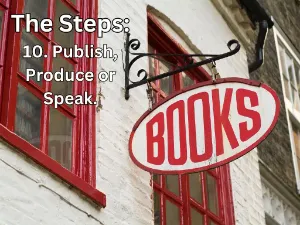Theatrical stage play script writing services. We have an expert playwright on staff!
By- Thomas Cleveland Lane
Edited by- Michael McKown
The playwright, the poet and the novelist are all writers, to be sure, but the disciplines of their respective arts are anything but congruent. Leaving aside poetry, which is, perhaps, a separate topic for another day, let us — well, let me, actually; all you have to do is keep your eyes on the page and pay something in the realm of attention — compare the two.
The author of narrative prose, on one hand, has a great deal more control of the finished product than does the playwright. For example, he (or she, in all cases, but, for the sake of brevity, I will use just the one pronoun going forward) can express a character’s anger by writing: “’I know what you did last night,’ he snarled.” The playwright can write the same quotation, but will not have a stagehand standing by to tell the audience, “This guy is really perturbed.” The playwright must rely on the actor and the director to pick up on that.
The novelist has no support system
On the other hand, the fiction writer has no one to give emotion to his words, so, in a way, he has more responsibility than does his counterpart. That is not to say the novelist has an easier job.
Well, now, wait a moment, you might interject, if you are the sort of individual who typically converses with the essays he reads, what about talking books? They are not the same thing as a stage show, mostly because, you only hear a talking book, while you both hear and see a stage show.
One thing that makes the playwright’s job more difficult, at least on a mechanical level, is that you cannot chug merrily along writing word after word in the same format, as your narrator is presently doing. If you are writing a stage show, then you are not just writing for the reader. You are writing for the director, the stage manager and every performer who takes the stage. To make your intentions clear to all those people, you will be expected to use different formats. For example, stage directions (which should be as sparse as possible; directors do not like to be micromanaged) are typically in italics. The name of the character speaking at any given moment must be separated from his or her dialogue by putting the name in bold type or caps. Not both, though. If you are writing a musical, and suddenly a character’s dialogue goes into all caps for several lines, that character is not shouting, he is singing. The same words the performer is to sing in your script will be repeated on the score.
Speaking of musicals (and, by extension, opera), you will not get to choose who will direct your show or who will act in it. Where you do have a choice is in selecting your composer to write the music. If you choose well, the composer can add tremendous depth to your sung words. The partnership that springs first to my mind is Rodgers and Hammerstein. Oscar Hammerstein’s lyrics, by themselves, make for excellent poetry, but Richard Rodgers’ music turned those words into great poetry. Take, for example, the musical, South Pacific. If you are not familiar with the show, then feel free to YouTube the dickens out of it. Only Rodgers’ music could fully bring out the sarcasm of Bloody Mary or the anger of You’ve Got to be Taught or the heartbreak of Once This was Mine.
The setting
Back to the art of writing plays with words only, you will be relieved to a far greater extent than the novelist, from writing extensive description. First of all the people in charge of actually staging your show will want a big say in how each scene is set. Some of our finest plays, such as Our Town, have minimal scenery.
Let me insert a brief note here regarding the playwright’s close cousin, the screenwriter. The formats are different, and the screenwriter is under far more of an obligation to produce action to go with all that dialogue. Your narrator can do both, but prefers writing for the stage.
Because you are not so very tasked with that part of your story, that means you have an even greater responsibility to write excellent dialogue: Witty in a comedy, compelling in a drama. If you are the sort of person who much prefers to concentrate on the dialogue, with a lot less emphasis on the setting, then the stage, rather than the book, may be right up your alley, as either a writer or a viewer. If, on the other hand, you have a keen eye for the scenery in your story, then maybe you should consider telling it in a book.
I may have given the impression that the playwright should give the cast and crew a great deal of leeway to intemperate his words, and I stand by that…to a great extent, but not absolutely. If the playwright feels there may be a good chance a certain bit of dialogue may be marred, then it is OK for him to stick in a small bit of instruction, even if it — God forbid — angers the actor who has the line.
Actor instruction
In my prime performing days, I auditioned for a part as one of the two gangsters in Cole Porter’s Kiss Me Kate. In the scene I was reading, my character was trying to remind the producer of a show that he owed a mobster a good chunk of money, which the producer did not actually owe. As the two thugs leave for the moment, the one for which I was reading the scene asks the producer to “jostle” his memory. Then, beneath the line, came the instruction to pronounce the “t” in “jostle.” That made me furious, because I was going to do that anyway and hoped it would give me that much more of an edge over my competitors for the part, but, if I were being honest with myself, I would have done the same thing if I were writing the manuscript. By the way, happy ending: I got the part.
So, yes, as a playwright, you do have that prerogative, but do not, do not, do not abuse it.
All this while, I have been writing this essay for the benefit of a reader who may someday want to write a play or script a musical. To that extent, I hope I may have been helpful and Ghostwriters Central’s playwrights stand willing and very able to edit your script, if that is what you wish.
We can write it for you
But what about the person who enjoys the theater but does not feel confident to actually write a play? Whether it’s a skit you were pressured to write for your job or a full-out production, from which you hope to reap money and admiration galore, an experienced playwright can provide you with an excellent product. If you want a straight play (which is what they call a script without music, even if that script is The Boys in the Band), then it’s on the mark, get set, go. If you want a musical, one of our playwrights will happily provide the manuscript and the song lyrics, but a composer would need to write the music.
If you want us to crank one out for you, strictly in the role of a ghostwriter, one of our playwrights will do so and not utter a peep as you humbly but proudly accept your Tony Award and Pulitzer Prize.
Our fee for playwright services can be found on our ghostwriting rates page.
[vcex_icon_box style=”two” heading=”EXPERTISE” heading_type=”h2″ icon=”fas fa-tools” icon_color=”#00bcc9″ icon_size=”60″]
Experienced pro writers available on a wide variety of subjects for books, screenplays, speeches, etc.
[/vcex_icon_box]
[vcex_icon_box style=”two” heading=”PAY PAL” heading_type=”h2″ icon=”fa fa-cc-paypal” icon_color=”#00bcc9″ icon_size=”60″]
We also accept payment via PayPal. In the case of large projects, we can work out payment plans,
[/vcex_icon_box]
[vcex_icon_box style=”two” heading=”WORLDWIDE SERVICE” heading_type=”h2″ icon=”fa fa-arrows” icon_color=”#00bcc9″ icon_size=”60″]
Headquartered in the Los Angeles, CA, area but helping clients everywhere with the best possible service.
[/vcex_icon_box]
[vcex_icon_box style=”two” heading=”” icon=”” image=”2855″ image_width=”166″ image_height=”166″ css=”.vc_custom_1514071684797{padding-top: 26px !important;}”][/vcex_icon_box]












